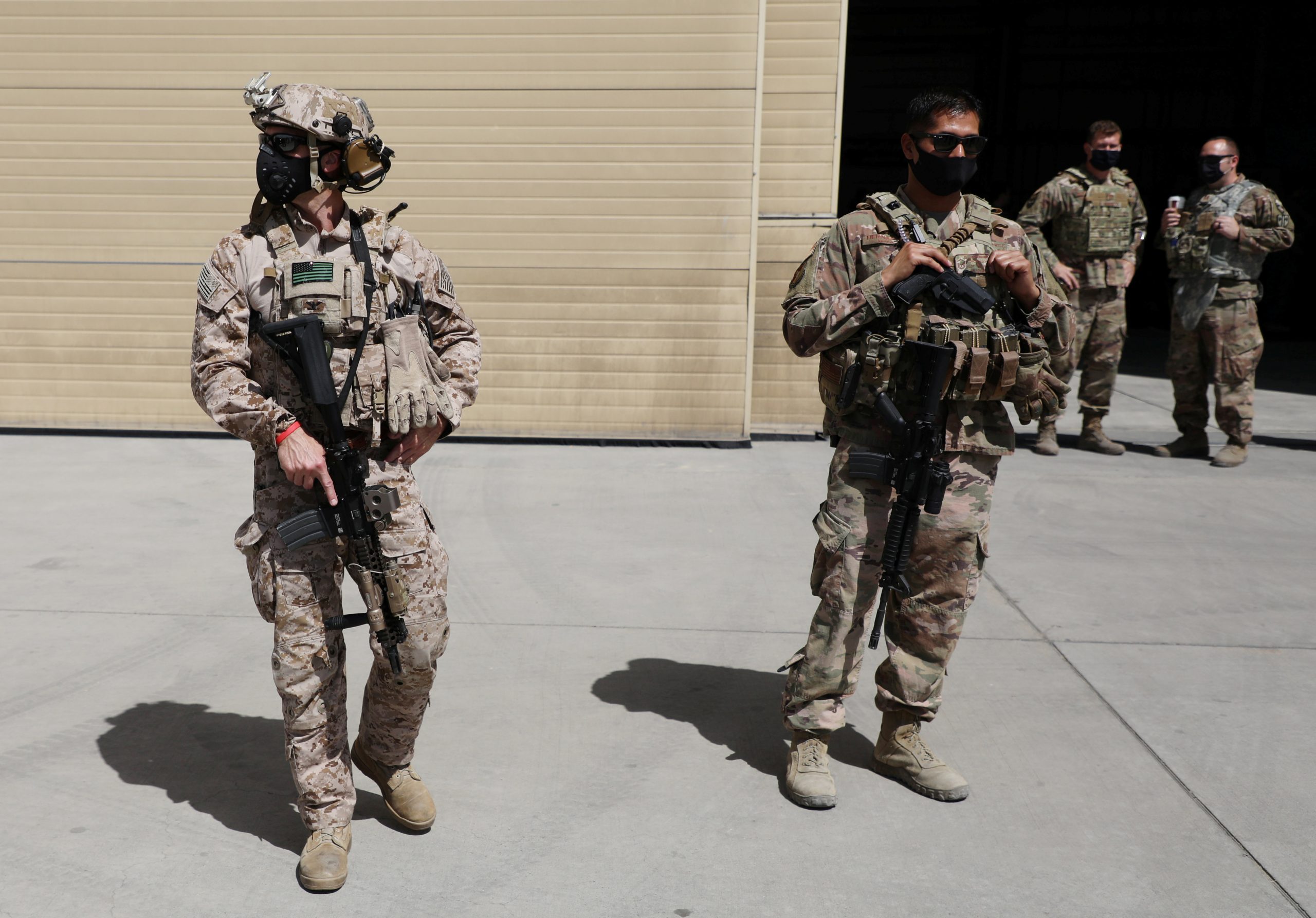Anguish, loss and anger flowed across America this week as veterans of the war in Afghanistan saw the nation they tried to prop up dissolve before their eyes
“I just can’t help thinking about what a waste it is. I can’t allow myself to think about how after all that blood and treasure, it ends like this,” retired Army Col. Janet Holliday of Louisville, Kentucky, told The New York Times.
“It makes me angry, really angry,” former Army Ranger Tom Amenta told The Washington Post.
“I mean, why did my friend get blown up? For what?” he said.
I deployed on Sep 21, 2001
So many lost in the Towers. So many brothers & sisters in arms lost
When I first arrived, I researched what the Taliban did to women. I briefed the troops on it. Horrific images seared in my mind: executions, hangings, stonings.
I’m struggling today
— Denver Riggleman (@RepRiggleman) August 15, 2021
Javier Mackey spoke to the Times about his 2008 deployment, in which a friend died and where he saw firsthand the depth of corruption in the Afghan army. After five deployments as part of the Army Special Forces, he came to realize victory was elusive, and that withdrawal with honor might be all that was left.
But what he has seen in recent days has been beyond his worst nightmares
“It’s pain — pain I thought I had gotten used to,” he said.
“I sacrificed a lot, I saw death every year. And the guys I served with, we knew it would probably come to an end like this. But to see it end in chaos, it makes us angry. After everything we gave, I just wish there had been a way to leave with honor,” he said.
“We train to have contingencies. The way it was handled was just irresponsible,” he said. “We didn’t want to have another Vietnam, we wanted to do better.”
“This one will hurt for a long time, man,” retired Army Lt. Col. Sean Gustafson told Stars and Stripes.
America’s departure was “a betrayal of American and international forces who have expended so much in life and limb to prevent the resurgence of the Taliban,” Seamus Fennessy, an Army staff sergeant, told the publication.
“I am disgusted,” he said, calling the pullout “sabotage.”
Jake Wood, who also was deployed in 2008, told the Times he had doubts about the war long ago.
“We had no idea what our mission was, even back then,” the former Marine sniper said. “Were we trying to defeat the Taliban? Were we nation-building? I don’t think we knew.”
U.S. Army veteran Matt Zeller goes off on MSNBC about Biden’s remarks on Afghanistan:
Zeller: “I feel like I watched a different speech than the rest of you guys. I was appalled.” pic.twitter.com/eGC5tMBvy4
— Whitney Robertson (@whitneyleerob) August 16, 2021
He also said that the spectacle of America running away is haunting.
“We already knew we were losing the war,” he said. “But now we are losing it live on TV in front of the rest of the world. That’s what’s so hard.”
Sarah Verardo, chief executive officer of the Independence Fund, a national nonprofit for veterans, said the fall of Afghanistan has been a significant stress for those who served there.
How can we #BeThere for veterans?
By letting them know about the mental health resources available to them.
The Veterans Crisis Line is available 24/7 to help any veteran experiencing a mental health crisis:
? 1-800-273-8255 & press 1
? https://t.co/Tm2j4kuwzq
? Text 838255 pic.twitter.com/O91RnSvGMV— House Veterans’ Affairs (@VetAffairsDems) August 16, 2021
“I got so many texts and phone calls, a veteran saying, ‘Well, I know what the Vietnam veterans feel like,’ or ‘I guess this is our Vietnam’ and [there’s] just a very defeated sense of what they’ve spent — many of them more than a decade of back-to-back tours — defending,” Verardo told Fox News.
“Our Gold Star families, they’re carrying a heavy burden and a really hard one to swallow as people casually say, ‘Was it worth it?’ and they have to know that their spouse or son or daughter made that ultimate sacrifice. So, whether we now as a nation can debate if it’s worth it or not, that person died believing it was,” she said.
“So now to have this war talked about in such a callous, insensitive way is bringing up a lot of feelings around what they have sacrificed, what they have lived through: divorces, legal issues, financial problems, and the mental health help that hasn’t been readily available.”
This article appeared originally on The Western Journal.

























 Continue with Google
Continue with Google